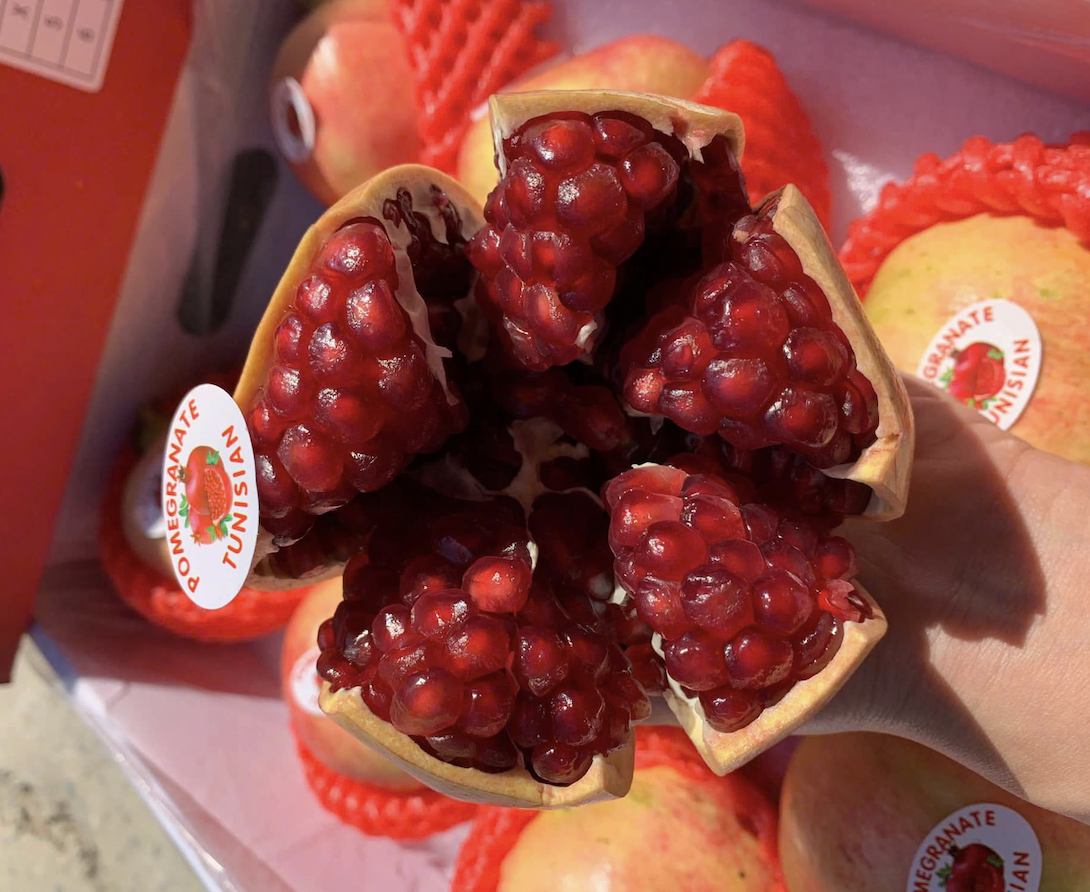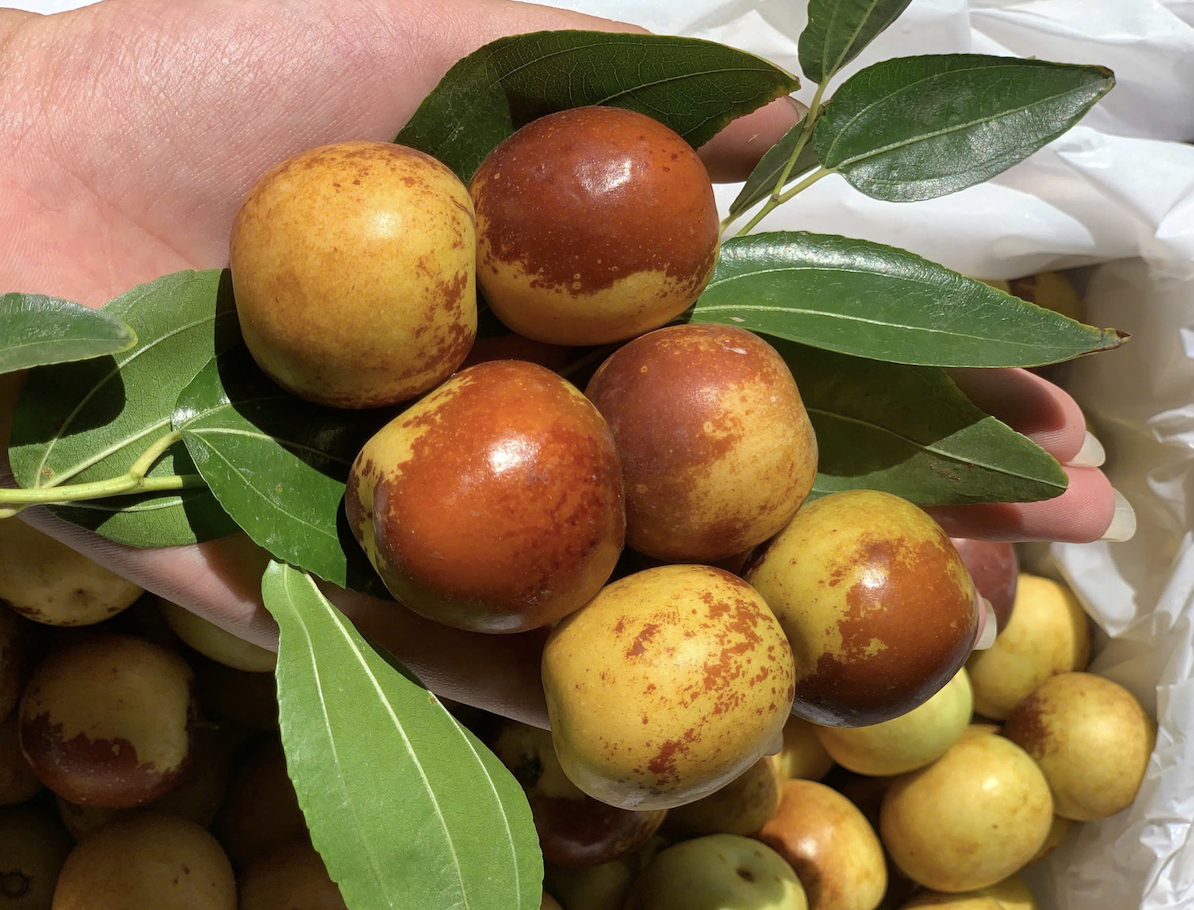In the first 10 months of 2024, Vietnam imported fruits and vegetables from China worth nearly $800 million (approximately 20 trillion VND), according to preliminary data from the General Department of Customs. This marks a 25% increase compared to the same period last year, when imports totaled $640 million.
Chinese fruits dominate Vietnamese markets in large quantities and at remarkably low prices, even after long-distance transport and multiple intermediaries. Some high-end varieties labeled as premium "Grade A" or "domestic goods" from China are also sold at surprisingly low prices.
In recent months, Chinese “pearl jelly” persimmons have flooded Vietnamese markets. Retail prices range from 50,000 to 90,000 VND/kg, but at wholesale online markets, they are sold for as little as 20,000 VND/kg.
Other varieties, such as honey persimmons and black persimmons, are equally affordable. Honey persimmons are priced at 13,000–18,000 VND/kg, while black persimmons are sold wholesale at 200,000 VND per 10-kilogram crate (20,000 VND/kg).
- Ruby grapes, known for their sweetness and crunch, are sold wholesale for 17,000–30,000 VND/kg depending on the variety.
- Fuji honey apples from Guizhou, advertised as a high-quality product, are sold for just 15,000 VND/kg.
- Milk grapes remain popular despite safety concerns following a banned substance scandal in Thailand. Wholesale prices range from 18,000 to 22,000 VND/kg.
- Pomegranates are another staple import, with hard-seed varieties priced at 6,000 VND/kg, soft-seed types at 14,000–17,000 VND/kg, and blood-red varieties at 25,000 VND/kg.
- Bia apples, currently in peak harvest season in China, are sold wholesale for only 8,000–10,000 VND/kg.
- Chinese red dates, marketed as a health tonic, are available for 25,000–30,000 VND/kg.
The remarkably low prices of these fruits have led to growing skepticism about their safety. Consumers and online forums frequently question whether such cheap imports meet food safety standards.
The Department of Plant Protection (Ministry of Agriculture and Rural Development) assured that food safety inspections on imported fruits are conducted per Decree 15 (2018), which outlines three inspection methods:
Reduced Inspection: Up to 5% of shipments are randomly checked.
Normal Inspection: Only shipment documents are reviewed.
Strict Inspection: Includes both document checks and sample testing.
The choice of method depends on risk assessments and past safety violations. Annual monitoring programs also include testing for pesticide residues on imported fruits.
Currently, Chinese fruits entering Vietnam are subject to normal inspections, though stricter methods can be applied if risks are identified, including increasing sample testing frequency.
The Department emphasizes its commitment to ensuring food safety and states that additional precautions can be taken if necessary.




Chinese red dates, often referred to as a "miracle remedy," are flooding Vietnamese markets at unprecedented low prices. At wholesale markets, the price of red dates typically ranges from 25,000 to 30,000 VND (1.00 to 1.20 USD) per kilogram.
Tam An